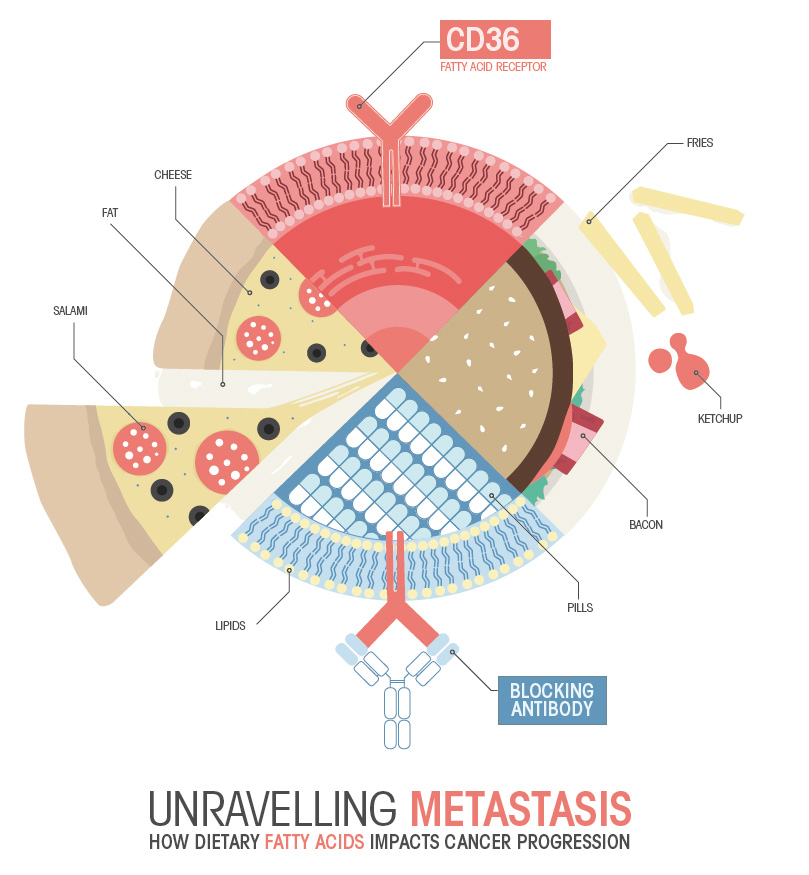Metastasis is the leading cause of cancer-related deaths, yet the identity of the cells responsible for metastatic spreading has remained historically elusive. In this work, we identified metastasis-initiating cells (MICs) in several types of human tumors. We show that MICs: (i) are exclusive in their ability to generate metastases when transplanted; (ii) intriguingly, they express the fatty acid channel CD36 and have a prominent lipid metabolic signature; (iii) are exquisitely sensitive to the levels of fat in circulation, thus providing a link between the predisposition of metastasis and dietary fat; (iv) are highly sensitive to CD36 inhibition, which almost completely abolishes their metastatic potential; and (v) operate in many different types of human tumors. This work is allowing us to characterize metastatic cells in an unprecedented manner, and helping us develop therapies targeting lipid metabolism with specific anti-metastatic potential.
References
